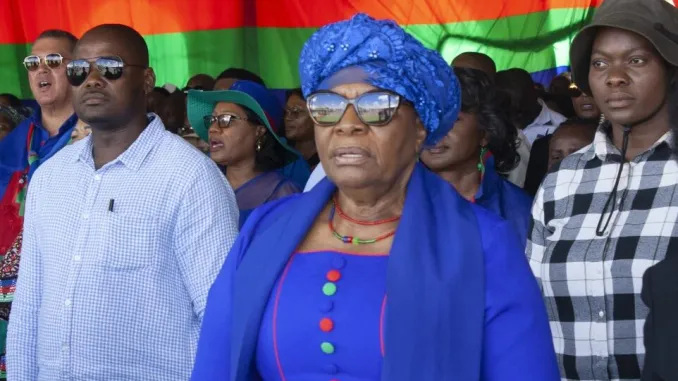
Namibia is going to have its biggest election ever for the ruling party
The SWAPO party has been in power in Namibia for 34 years, but this is likely to be their toughest election yet. Voting takes place on Wednesday.
If Netumbo Nandi-Ndaitwah, the SWAPO candidate, wins, she will be the first woman to lead the country as president. It would be the first time since Namibia got its freedom from apartheid South Africa in 1990 that power would change hands from SWAPO to a different party.
High unemployment, claims of graft, and unfair treatment of people have hurt SWAPO’s support, which dropped from 87% in 2014 to 56% in the 2019 presidential election. We don’t have any good polls on how it might do this time.
Out of the 14 opposition candidates, Panduleni Itula is the clear favorite. He is a former dentist who got 29% of the vote in 2019 after leaving SWAPO and now leads a new political party called the Independent Patriots for Change.
The president needs more than 50% of the votes to win. Members of parliament get one vote, and the president gets two.
A professor at the University of Namibia named Rui Tyitende said, “This will be the most difficult and important election since the first one in 1989.”
He said the result would depend a lot on how many young people, who make up more than half of the voters and tend to support the other side, showed up to vote.
“Young people are disproportionately affected by unemployment, poverty and consumed with a deep sense of hopelessness,” he said.
“If they do not pitch, SWAPO will win.”
Independence-era parties were put to the test.
Namibia is now run by Nangolo Mbumba, who took over as temporary president after Hage Geingob’s death in February but is not running for office.
The World Bank says Namibia has a high amount of poverty and inequality even though it has an upper-middle income.
A government report from 2021 said that 43% of the people living there were living in “multidimensional poverty.” This is a term that includes income as well as things like access to schooling and public services.
According to the World Bank, Namibia is second in the world for income inequality, just behind its neighbor South Africa. Both countries were run by white minorities for many years.
Even though Nandi-Ndaitwah has never been linked to any corruption cases, SWAPO has had a hard time keeping its distance from them. There are still two former ministers on trial in the “fishrot” case, which is a big bribery scam that came to light in 2019.
A political expert named Ndumba Kamwanyah said, “There is a chance that the ruling party SWAPO could end up like the ANC in South Africa or the BDP in Botswana.”
The Botswana Democratic Party (BDP) lost an election in October, ending its 58-year rule, and the African National Congress (ANC) lost its parliamentary majority in May. After 30 years in power, the ANC was forced to form an alliance.
Analysts say that in southern Africa, parties from the time of independence are up against younger people who don’t remember the liberation fight and are more likely to judge them based on how well they’ve done at providing services and creating jobs.
Kamwanyah said that SWAPO has strong support because it has deep roots in rural areas, a well-established party machine, and some people are still affected by its fight against apartheid.
Most of the time, people who watch elections say that Namibia’s past elections were fair and trustworthy.
All Categories
Recent Posts
Tags
+13162306000
zoneyetu@yahoo.com



